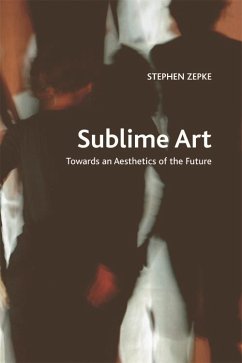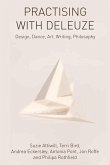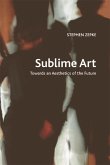Stephen Zepke tracks the sublime art movement from its beginnings in Kant to its flowering in the late 20th and early 21st centuries. He shows that the idea of sublime art waxes and wanes in the work of Jean-Francois Lyotard, Gilles Deleuze and Felix Guattari, Jacques Derrida, Jacques Ranciere and the recent Speculative Realism movement. With it, a visionary politics of art seeks to give it the most creative power possible: the power to overcome our conditions and embrace the unknown.
Dieser Download kann aus rechtlichen Gründen nur mit Rechnungsadresse in A, B, BG, CY, CZ, D, DK, EW, E, FIN, F, GR, HR, H, IRL, I, LT, L, LR, M, NL, PL, P, R, S, SLO, SK ausgeliefert werden.









